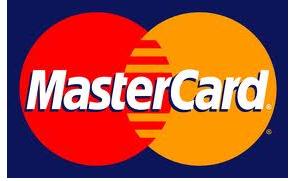MasterCard
MasterCard loses court challenge over cross-border card fees
 MasterCard Inc. lost a court challenge seeking to overturn a European Union decision that the company's cross-border card fees violated antitrust rules.
MasterCard Inc. lost a court challenge seeking to overturn a European Union decision that the company's cross-border card fees violated antitrust rules.
The EU's General Court today backed the European Commission's decision that MasterCard unfairly inflated the transaction fees paid by retailers for processing payments.
MasterCard's "approach tends to overestimate the costs borne by the issuing banks and, moreover, inadequately to assess the advantages which merchants derive from that form of payment," the Luxembourg-based tribunal said in the ruling.
The second-biggest card network, supported by banks including HSBC Holdings Plc and Royal Bank of Scotland Group Plc, argued the so-called multilateral interchange fees were crucial for sharing the costs of debit and credit card payments. The case tested whether such levies are unfair to retailers and customers and could be a road-map for national regulators to pursue their own complaints.
Without the fees, "merchants would be able to exert greater competitive pressure on the amount of costs they are charged for the use of payment cards," the court said.
MasterCard said it will appeal the ruling to the EU's highest court. Today's decision "will ultimately make payments more expensive for consumers" by upsetting a system that shares costs between banks, retailers and shoppers, the Purchase, New York-based company said in an e-mailed statement.
How to Comply
Regulators expect MasterCard to contact them "to explain how they intend to comply with the ruling" confirming the 2007 order to pull the fees under threat of a penalty of 3.5 percent of daily sales, said Antoine Colombani, a commission spokesman.
Visa Europe Ltd. and MasterCard are invited "to consider carefully how to bring their multilateral interchange fees in the EU in line with competition rules," EU Competition Commissioner Joaquin Almunia said in a statement.
Visa Europe is also under review by EU regulators for its cross-border credit-card and deferred-debit transaction fees. Almunia said last year he planned to send it a formal antitrust complaint. Visa Europe, operator of the largest payment-card network in the 27-nation EU, reduced similar fees for debit cards last year to settle a 2009 EU complaint.
Visa Europe "would like to reach a commercially acceptable agreement on an appropriate methodology for setting" the fees, said Amanda Kamin, a spokeswoman for Visa Europe in London. The company has split from Visa Inc.
National investigations
Today's ruling may also affect court cases and antitrust inquiries in EU member states because it confirmed that banks "cannot restrict competition" by using a card payment network, the commission's Colombani said.
The verdict makes the EU's decision "a blueprint for agencies such as the Office of Fair Trading" probing domestic interchange fees, said Emanuela Lecchi, a lawyer at Watson, Farley & Williams LLP in London. MasterCard makes most of its revenue on domestic transactions; cross-border sales covered in the EU case are a small part of earnings.
"There is a lot less work for the national authorities because this European decision can be easily replicated," Lecchi said in a telephone interview. "The court has effectively said that the multilateral interchange fee system is not necessary for the system to operate."
The U.K's OFT is "reviewing the judgment and its implications for our own investigations into MasterCard and Visa U.K.'s multilateral interchange fee arrangements and will provide an update in due course," said Frank Shepherd, a spokesman for the regulator in London.
Retailer complaints
Retailers have long complained about the costs. Unlike for checks, banks charge interchange fees to process debit- and credit-card payments. Card operators set the amounts, own the payment networks and pass the money to the lenders. The retailer's bank pays the fees to the customer's card issuer.
Five U.K. retailers, including Wal-Mart Stores Inc.'s Asda, have filed separate lawsuits in London against Mastercard this week, according to court documents dated May 23.
William Morrison Supermarkets Plc, the smallest of the top four U.K. grocers, is studying the decision to see "whether to take matters further," said Julian Bailey, a spokesman.
Nick Agarwal, a Leeds-based spokesman for Asda, confirmed its suit and declined to comment. Clothing seller Next Retail Ltd. declined to comment on its lawsuit, a spokesman said.
MasterCard didn't immediately respond to requests for comment on the U.K. lawsuits.
'Very Good News'
The decision could also enable government limits on interchange fees, said Brendan Doyle, chief executive officer of CMS Payments Intelligence, which advises retailers including Arcadia Group Plc and BP Plc. U.K. rules could save them as much as 700 million pounds ($1.1 billion) a year, he said.
"Given the very thin operating margins and the high insolvency rate of shops, this is very good news for retailers," Doyle said in a statement.
EuroCommerce called the fees an "unseen and non-negotiable burden for merchants" costing retailers about 25 billion euros ($31 billion) a year, EuroCommerce said in an e-mailed statement. The group, which represents Tesco Plc and Carrefour SA (CA), trusts "national competition authorities will now follow" the EU court in saying the fees are illegal.
Javier Perez, president of MasterCard Europe, said in a telephone interview national regulators' moves against interchange fees may force networks to increase annual card fees and cut benefits such as air miles or cash-back incentives.
The ruling also means MasterCard's 2009 deal with the commission to cap cross-border interchange fees "expires today," Perez said. The company would voluntarily keep fees at the agreed levels of 0.3 percent of a transaction's cost for credit cards and 0.2 percent for debit cards, he said.
The case is: T-111/08, MasterCard and others v. European Commission.
(Published by Bloomberg Businessweek - May 24, 2012)